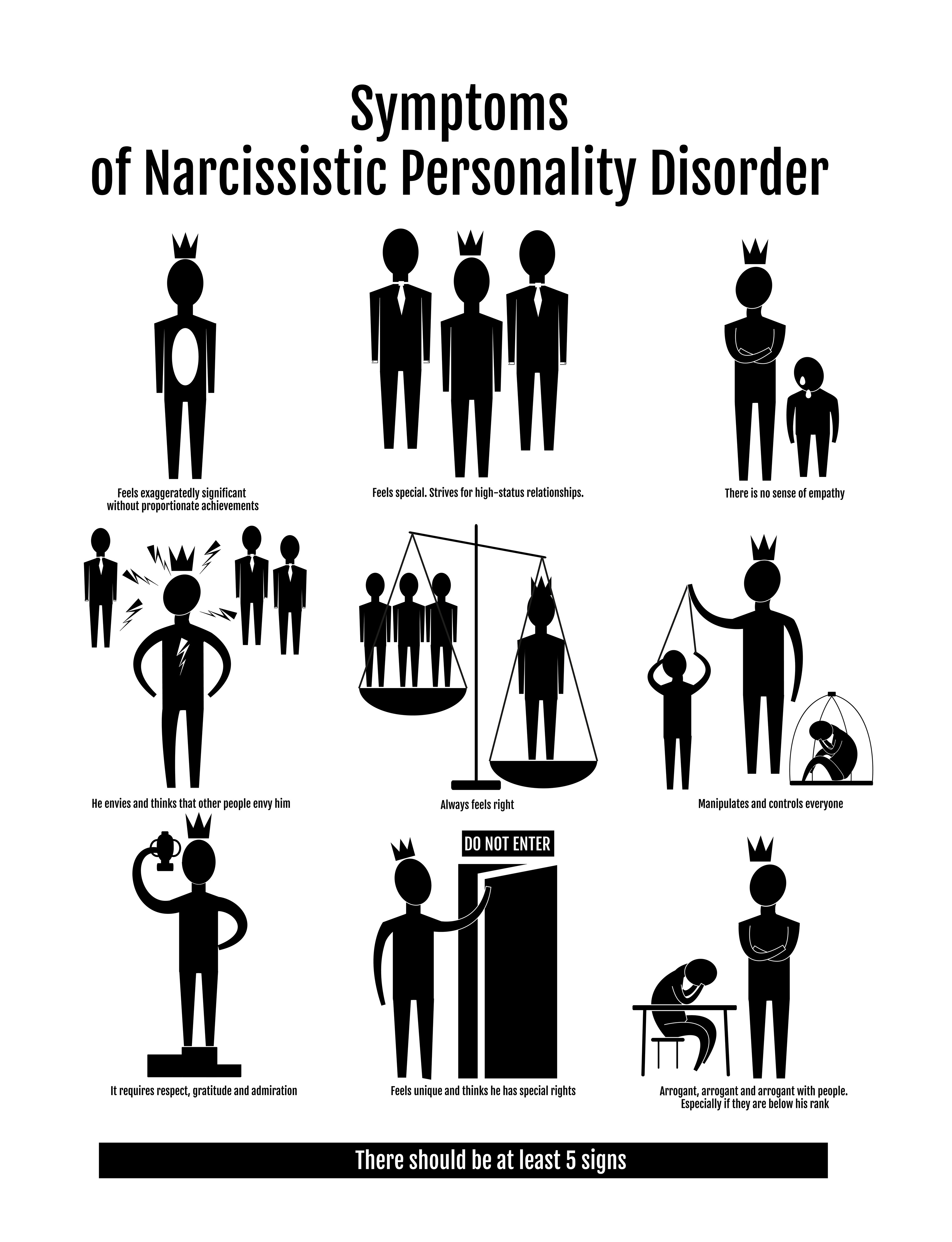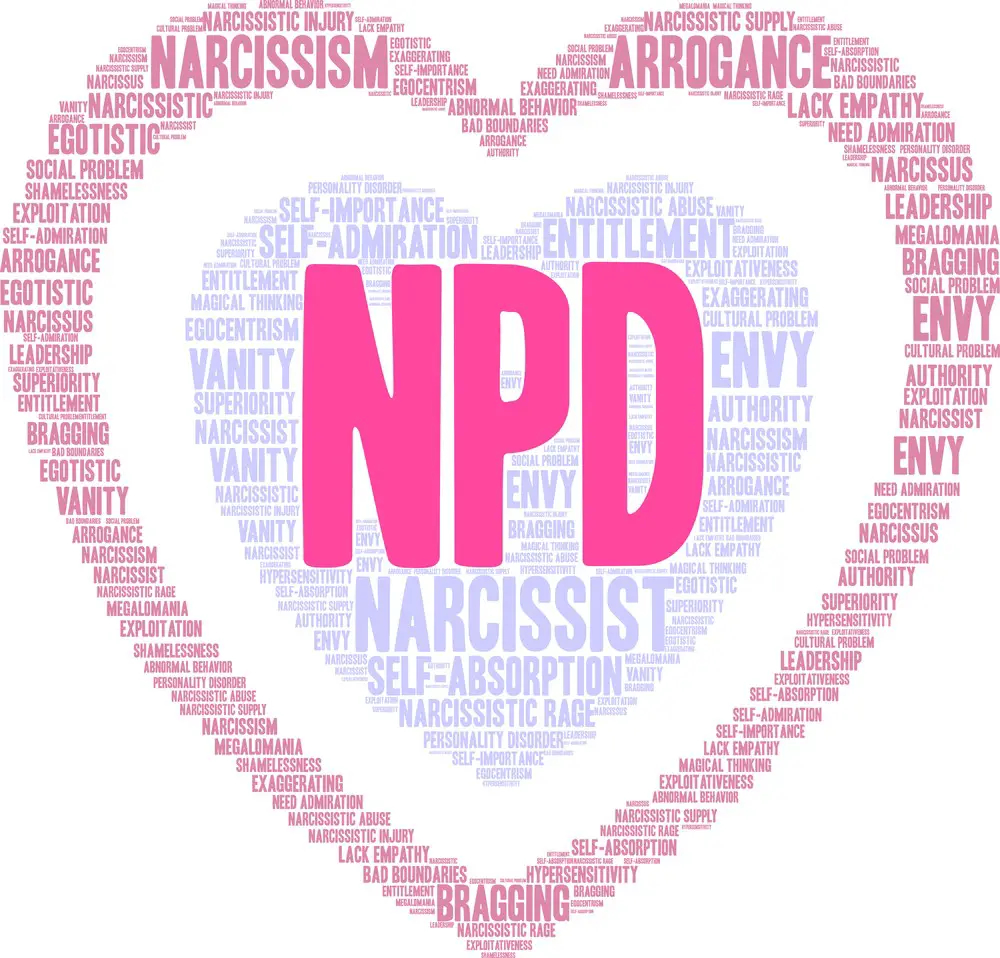As a BetterHelp affiliate, we receive compensation from BetterHelp if you purchase products or services through the links provided
Narcissism is characterized by excessive self-admiration, a grandiose sense of self-importance, and a lack of empathy for others. While many people are familiar with overt narcissists, who display these characteristics openly, there is another type of narcissist that is less obvious: the covert narcissist. Covert narcissists, also known as “closet” or “vulnerable” narcissists, present themselves as quiet, shy, and passive individuals, but deep down, they possess the same tendencies as their overt counterparts.
A covert narcissist husband can be challenging to identify, as they often hide their undesirable qualities behind a veil of humility and modesty. This can make it difficult for their partners to recognize the true nature of their spouse’s behavior, which can have severe consequences on their relationship and mental well-being. Understanding the traits of covert narcissism and learning to recognize them in a spouse is crucial to address the issue adequately and take necessary steps toward recovery.
Key Takeaways
- Covert narcissists possess less obvious narcissistic traits, making them challenging to identify.
- A covert narcissistic husband can severely affect their partner’s mental well-being and relationship.
- Understanding and recognizing covert narcissism traits in a spouse is crucial for addressing the issue and moving toward recovery.
 Understanding Covert Narcissism
Understanding Covert Narcissism
Covert Narcissism is a subtle form of Narcissistic Personality Disorder (NPD) that is not as easily recognizable as its overt counterpart. Those with covert narcissism often exhibit a sense of entitlement and self-importance but do so in a more hidden or indirect manner. A seemingly humble exterior can mask their need for admiration and validation.
Individuals with covert narcissism may have a strong sense of superiority over others, but they present themselves as ordinary and may even seem modest. This is why they can be referred to as A Wolf in Sheep’s Clothing. They can blend in with the surroundings and charm people into believing they are kind and empathetic, while they lack true empathy and understanding for others’ feelings.
One of the primary characteristics of covert narcissists is their ability to manipulate others through techniques such as gaslighting. Gaslighting is a form of emotional manipulation wherein the narcissist will make the victim doubt their reality, often making them question their thoughts and feelings. By doing this, the covert narcissist maintains control over the victim, allowing their narcissistic tendencies to thrive unchecked.
Another aspect of covert narcissism is the strong belief that they are special and deserve special treatment. They may cultivate an air of mystery to appear unique or intriguing. This can appeal to others, as they may find it interesting or feel a sense of connection with the covert narcissist. However, this outward appearance of warmth and vulnerability is simply a means to an end for the covert narcissist, who seeks to build a loyal following of admirers to feed their constant need for validation and attention.
Overall, understanding covert narcissism is critical to protecting oneself from manipulative tactics. Recognizing the signs early can help prevent damage to one’s self-esteem and emotional well-being. Always remember that covert narcissists are master manipulators who will go to great lengths to maintain an image of themselves as superior while undermining and invalidating others.

Identifying a Covert Narcissist Husband
A covert narcissist husband often displays passive-aggressive behavior in relationships. This can manifest as subtle manipulation tactics fueled by their underlying insecurity. They may work to present an image of a loving partner while undermining their spouse’s self-confidence and causing anxiety.
Insecurity is a core trait of a covert narcissist husband, leading to feelings of inadequacy and the need for constant validation. They will try to control their spouse to feel more secure in the relationship, often resorting to manipulation. This can include guilt-tripping, subtle put-downs, and playing the victim to gain sympathy and control.
One of the main problems in dealing with a covert narcissistic husband is recognizing their true nature. Their actions and words are often indirect, making it difficult to identify their manipulative behavior. Zydrofobia’s knowledge of the narcissistic personality may differ from The Psychiatric Association’s (APA) take on the disorder; thus, it is essential to educate oneself on the nuances of this personality type.
The When a Narcissist Meets His Match: An Unveiling of Paradoxical Dynamics resource offers valuable insight into understanding and dealing with narcissistic abuse in relationships. The tools and strategies presented in this material can be helpful for those navigating the complexities of living with a covert narcissistic spouse.
In conclusion, recognizing the signs of a covert narcissist husband is critical to addressing the problems within the relationship. Understanding their passive-aggressive and manipulative behavior, fueled by their insecurity, can help mitigate their impact on one’s mental and emotional well-being.
 Effects on the Relationship
Effects on the Relationship
A covert narcissistic husband can significantly impact a relationship, often leading to emotional distress for both partners. One common effect is a power imbalance, wherein the narcissist seeks to control and dominate their spouse. This control can manifest through manipulative behavior, such as guilt-tripping, gaslighting, and playing the victim, leaving their partner increasingly powerless and degraded.
Another effect is the erosion of personal boundaries. Covert narcissists often disrespect their spouse’s opinions, feelings, and needs. They may dismiss their partner’s perspective and refuse to acknowledge their worth, resulting in persistent feelings of self-doubt in the partner. This disrespect can lead to a pattern where the partner believes they must continually sacrifice their needs to maintain peace.
Jealousy can be a pervasive issue in relationships with covert narcissist husbands. Their insecurity often causes them to excessively envy their spouse’s achievements, friendships, or hobbies. This jealousy can lead to suspicion and accusations that, in turn, place additional strain on the relationship, further feeding the narcissist’s need for control.
Regarding communication, covert narcissists often use silent treatment as a manipulative tool. When their spouse confronts them about their behavior or tries to enforce boundaries, they may respond by withdrawing affection, support, or communication. Consequently, the narcissist’s spouse may feel isolated, unheard, and invalidated, making it challenging to address and resolve conflicts within the relationship.
The multitude of effects caused by a narcissistic spouse can lead to the suppression of their partner’s feelings and a decrease in their sense of self-worth. The constant confusion caused by blame, manipulation, and disrespect can be emotionally draining and have a detrimental effect on their overall well-being and mental health.
 Psychological Impact and Coping Strategies
Psychological Impact and Coping Strategies
A covert narcissistic husband can have a significant psychological impact on their spouse. They may constantly criticize their partner, instilling a deep sense of shame. Over time, this repeated emotional abuse can lead to feelings of depression, trauma, and resentment in the victim.
Therapy is invaluable for addressing the effects of living with a covert narcissist. Engaging with a mental health professional can help the victim find validation as they recognize their husband’s abusive patterns. A skilled therapist can guide the client through various coping strategies, such as:
- Recognizing the abuse: The first step to coping with a covert narcissist is to acknowledge that the abuse is happening. Identifying the manipulative behavior patterns as they occur can help the victim feel more in control and aware of their situation.
- Setting boundaries: Developing clear boundaries with the covert narcissist husband is crucial. This may entail limiting what types of behavior are allowed and learning to say no to unacceptable treatment firmly.
- Focusing on self-care: Anyone in a toxic relationship must prioritize their mental health and well-being. This can include participating in activities that bring joy and relaxation and connecting with a support network of understanding friends and family members.
- Practicing self-compassion: Victims of covert narcissists may internalize the damaging criticisms they hear. Practicing self-compassion can help combat these negative thoughts and replace them with positive affirmations.
Additionally, a mental health professional may be able to educate the victim about the covert narcissist’s tactics and provide guidance on possible courses of action. This often includes learning to disengage from the abuser, seeking safety from physical violence, and exploring legal options.
By working with a trained therapist and practicing coping strategies, individuals who experience covert narcissist abuse can reclaim their sense of self and begin to heal from the emotional and psychological damage they have endured.
 Recovery and Moving Forward
Recovery and Moving Forward
Recovering from a covert narcissistic husband can be challenging, and filled with many emotions. It is essential to work through these feelings to move forward from this toxic relationship. One might feel emotional pain, self-doubt, and confusion during this period. However, it’s crucial to recognize that healing is possible and attainable.
Seeking professional help from a therapist is often an invaluable step in the recovery process. Therapy can provide a safe space for individuals to share their experiences and gain insight into their emotions. A therapist can also offer guidance on developing self-awareness and learning to discern the subtle tactics a covert narcissist employs.
Establishing healthy boundaries is vital in any relationship, particularly when recovering from narcissistic abuse. Setting limits for acceptable behaviors is crucial to safeguard one’s emotional well-being. These boundaries can create a foundation of self-esteem and personal integrity, ultimately empowering individuals to protect themselves from further emotional pain.
Developing self-awareness is a crucial component of healing. This process involves reflecting on one’s thoughts and feelings and recognizing the unhealthy patterns that may have contributed to being in a relationship with a covert narcissist. Through increased self-awareness, one can better understand their emotions and reactions, allowing them to take control of their life and foster healthier future relationships.
It’s essential to remain patient and persistent while recovering from a covert narcissistic husband. Healing takes time and may involve moments of doubt or relapse. However, by seeking therapy, establishing boundaries, and developing self-awareness, one can gradually move forward and reclaim their life free from the crazy-making influence of narcissistic abuse.
Frequently Asked Questions

How to cope with a covert narcissist spouse?
To cope with a covert narcissist spouse, it is essential to establish boundaries and prioritize self-care. Knowing when to disengage from a conversation spiraling into an emotional battleground can help maintain your mental well-being. Seek professional counseling if needed, and consider joining a support group for those dealing with narcissistic partners.
What are common behaviors of a covert narcissist in marriage?
In a marriage, covert narcissists may demonstrate passive-aggressive behaviors, emotional manipulation, and an inability to accept responsibility for their actions. They often create a victim narrative, exhibiting a sense of entitlement and superiority. A covert narcissist may also be excessively critical of their spouse, causing them to feel insecure, inadequate, and emotionally drained.
Can a covert narcissist truly love their partner?
Though covert narcissists may experience feelings of affection, their ability to truly love another person is often limited by their self-centered nature. They see relationships primarily as opportunities to fulfill their needs, emphasizing control and validation rather than mutual support and understanding.
What is the covert narcissist relationship cycle?
The covert narcissist relationship cycle follows four stages: idealization, devaluation, discard, and hoovering. Idealization occurs when the narcissist initially showers their partner with attention and admiration, followed by devaluation, wherein the partner is criticized and demeaned. When the discard stage is reached, the narcissist rejects the partner, and the cycle may end, only to be revived during the hoovering stage, in which the narcissist lures the partner back in with promises of change and renewed affection.
What are the signs of a covert narcissist spouse?
Some signs of a covert narcissist spouse may include passive-aggressive communication, an inflated sense of self-worth, an inability to apologize, holding grudges, and a lack of empathy. They may also be controlling, exhibit chronic boredom or dissatisfaction, and have a history of unstable relationships.
How does divorce impact a covert narcissist husband?
Divorce can be particularly challenging for a covert narcissist husband, as it represents a loss of control and a threat to their self-image. In response, they may use manipulative tactics to prolong or influence the divorce proceedings, attempting to turn others against their partner and even using their children as pawns. It is crucial for the partner seeking divorce to establish boundaries and obtain legal and emotional support during this process.
As someone who has dealt with a narcissistic spouse in a difficult custody battle, I understand the challenges of navigating a relationship with someone who consistently puts their needs above others. While I take Lexapro to manage my mental health, I’ve also learned strategies for dealing with narcissistic behavior and protecting myself and my children from its harmful effects.
Despite the ongoing court battle with my ex-partner’s severe case of narcissism and her complete alienation from our children, I remain committed to fighting for their well-being and doing what I can to manage my mental health. I take long walks daily to clear my head and focus on what’s important.
To provide support and guidance to others who may be facing similar challenges, I write articles about mental health and narcissism. I also have a legal site where I help others dealing with a spouse who refuses to comply with court orders and weaponizes their children rather than co-parenting. I hope to provide resources and strategies for dealing with a narcissistic spouse and navigating difficult relationships, whether it be through legal action or personal growth and healing. With the right support and resources, anyone can overcome their mental health challenges and find a path toward healing and recovery.
- 3 Ways Wearing a Hat Can Help Lower Your Stress Levels - April 19, 2025
- Breaking the Silence: Why Men’s Mental Health Matters More Than Ever - April 15, 2025
- How to Transform a Home’s Patio Space into a Relaxing Space - March 23, 2025
This site contains affiliate links to products. We will receive a commission for purchases made through these links.


 Understanding Covert Narcissism
Understanding Covert Narcissism
 Effects on the Relationship
Effects on the Relationship Psychological Impact and Coping Strategies
Psychological Impact and Coping Strategies Recovery and Moving Forward
Recovery and Moving Forward

